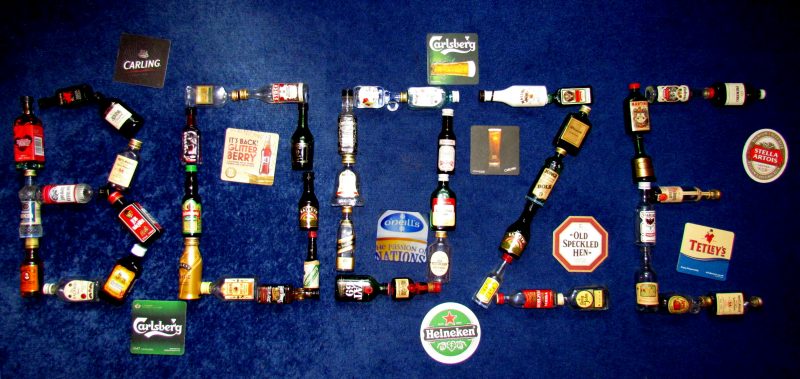The House of Representatives is deliberating an alcohol prohibition bill. But concerns have been raised, and many believe the move would be counterproductive.
A long-proposed prohibition bill on alcohol has returned to the House of Representatives in the wake of a brutal gang rape and murder of the 14-year-old schoolgirl in Bengkulu. The fact that the rapists consumed palm wine has galvanized anti-alcohol activists in the archipelago to push the bill forward on the government’s agenda. The bill is controversial at best, and many question whether prohibition would be the right way forward. Advocates say the country’s cultural problem with sexual violence can be more aptly linked to weak education about what rape really is, combined with the country’s evidently lenient legal consequences.
Additionally, when entertaining the idea of what alcohol prohibition might bring to the nation, a handful of politicians believe, “when one door closes, another one opens.”
The liquor prohibition bill in question was initially proposed last year by two political parties – the United Development Party and the Prosperous Justice Party – to protect people from the negative health effects of liquor. Fahira Idris, chairwoman of the National Anti-Liquor Movement (Gerakan Nasional Anti Miras) and a member of the House of Regional Representatives, says the repeated involvement of alcohol in criminal cases committed by minors is a sure sign that Indonesia’s youth is in danger. She tells Indonesia Expat:
“Almost every day, we hear reports of criminal acts as a result of alcohol, including murder, rape, robbery, and riots. Many of our children are losing their futures as a result of alcohol. We need a constitution-level regulation that strictly prohibits liquor throughout Indonesia. [The volume of] alcohol-related data, facts, and tragic events show us that alcohol is undeniably a source of disaster.”
According to Idris, research conducted by Gerakan Nasional Anti Miras in cooperation with the University of Indonesia’s Center of Criminology Studies concludes that 34.9 percent of children who committed a murder in Indonesia drank liquor before or during the act. The study also claims that easy access to liquor is another key factor. Idris adds that the number of young people who consume alcohol is on the rise in general. She says 4.9 percent of young people drank in 2007, a number that jumped to 23 percent in 2014. “This is a danger,” says Idris.
The government has taken action to address the issue. Indonesia already has a regulation that supervises and controls the production, distribution, and consumption of certain products. Alcohol is prominently one of them. Some cities, such as East Java’s capital Surabaya, are even imposing a full-on ban of liquor sales. Last year, the government started banning beer in mini-markets across the nation. However, people like Idris believe these actions are just not enough.
“The bylaws are certainly not enough. Out of 514 districts and cities in Indonesia, there are only around 20 districts or cities that have alcohol or anti-alcohol bylaws,” claims Idris. “The rest do not have clear bylaws on production, distribution, and consumption of alcohol. So just imagine; most areas in Indonesia do not have clear rules about alcohol, whereas alcohol is a source of social problems. A law on liquor prohibition means that regulation would be applied nationally, and must be complied with by everyone throughout Indonesia.”
The bill would ban producing, storing, distributing, and consuming alcohol, with exceptions for cultural, religious, tourism, and pharmaceutical purposes. This important nuance is covered in articles 5, 6, and 7 of the document. Meanwhile, there are three types of alcoholic beverages that are prohibited in the bill; they are type A (1 percent to 5 percent alcohol content), type B (5 percent to 10 percent), and type C (20 percent to 45 percent). The proposed punishments range from three months to ten years in prison, and a fine of between Rp.20 million (US$1,489) and Rp.1 billion (US$74,474).
However, just like many other bills in the House of Representatives, it sparks controversy. In contrast to Idris, Rofi Uddarojat, a researcher at the Centre for Indonesian Policy Studies argues that a liquor prohibition bill is not the right move. He explains that the actual problem the government should tackle – in relation to booze – is illegal, smuggled, and fake alcohol. Not only problematic for business, bootleg liquor is dangerous, says Uddarojat.
In February, bootleg liquor, also known as ‘miras oplosan’ (alcohol mixed with dangerous substances like methanol, sleeping pills, mosquito repellent, and more) killed 24 people in Jogjakarta. A similar case also occurred in early May. In total, miras oplosan has harmed around 823 people in Indonesia since 2013, approximately half of whom lost their lives. Miras oplosan is usually sold illegally throughout the archipelago. Not only is it a cheaper way to get intoxicated, it’s also easy to get, unlike licensed liquor, which is limited in distribution. Ironically, Indonesians consume 0.6 litres of alcohol per capita, and 0.5 litres of these are illegal, according to the World Health Organization. The twist, according to Uddarojat, is that a liquor prohibition bill would likely increase this figure.
“In some of our studies, we found that in fact there is a very strong correlation between miras oplosan and prohibition. The data shows that most of the miras oplosan victims are from districts or cities that implement limited or total liquor prohibition. Out of 30 districts or cities in Java where the victims are from, 83.4 percent of the victims live in 23 districts or cities that implement these bylaws,” says Uddarojat in an interview with Indonesia Expat.
According to him, “prohibition would force the alcohol business in Indonesia to become an illegal black market, which would further increase consumption of dangerous homemade liquor.”
He adds, “With the ban as covered in the bill, miras oplosan, which has killed hundreds of people, will be even more rampant and more difficult to control by the government. The lower class will be ‘forced’ to consume miras oplosan. According to the bill, as an exception, alcohol can be consumed for tourism purposes. Essentially, this means only the rich are ‘allowed’ to consume alcohol if the bill is passed.”
Instead of banning alcohol, Uddarojat suggests that the government focus on tightening its supervision efforts. One of the ways to do so is to strictly enforce a legal drinking age in Indonesia, making it illegal for people under the age of 21 to drink or purchase booze. By allowing consumers easy access to legal alcohol, the government could also shift back purchase preferences from dangerous homebrew to safer spirits.
On top of the potential for a black market and the likely increase of miras oplosan sales, the bill has also led to other, more subtle, speculations. Some say the bill could be used as a tool for corruption, as the case can be made that there is a hidden political agenda behind the bill itself. Others believe the word ‘prohibition’ should be removed from the bill’s name, so as not to mislead the public on its content. Currently, the bill is under deliberation by the House of Representatives, and is set to be decided on later this month.




